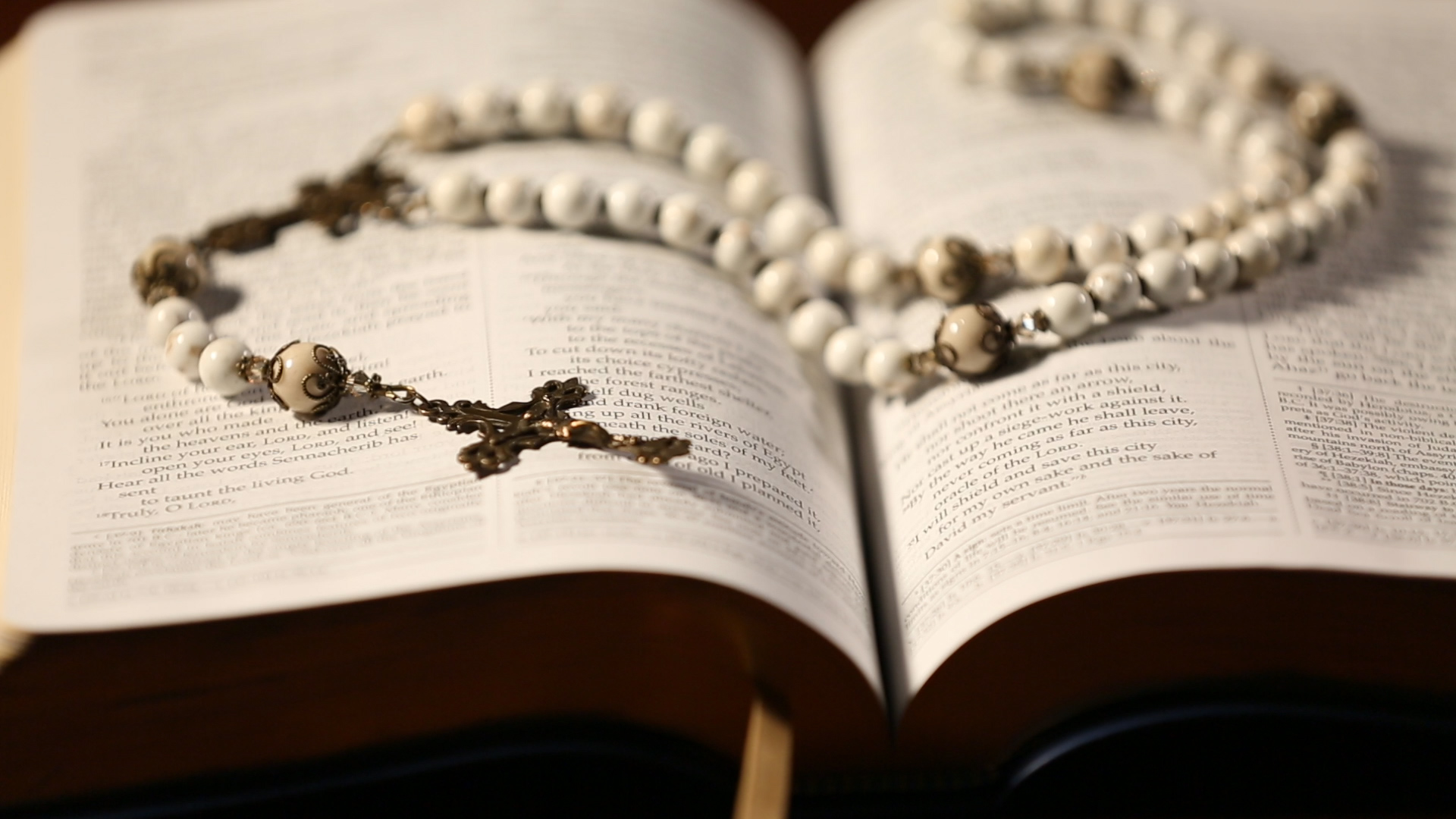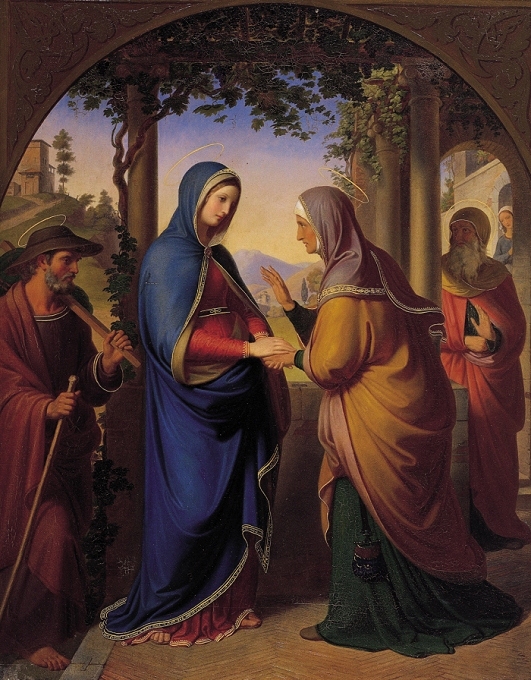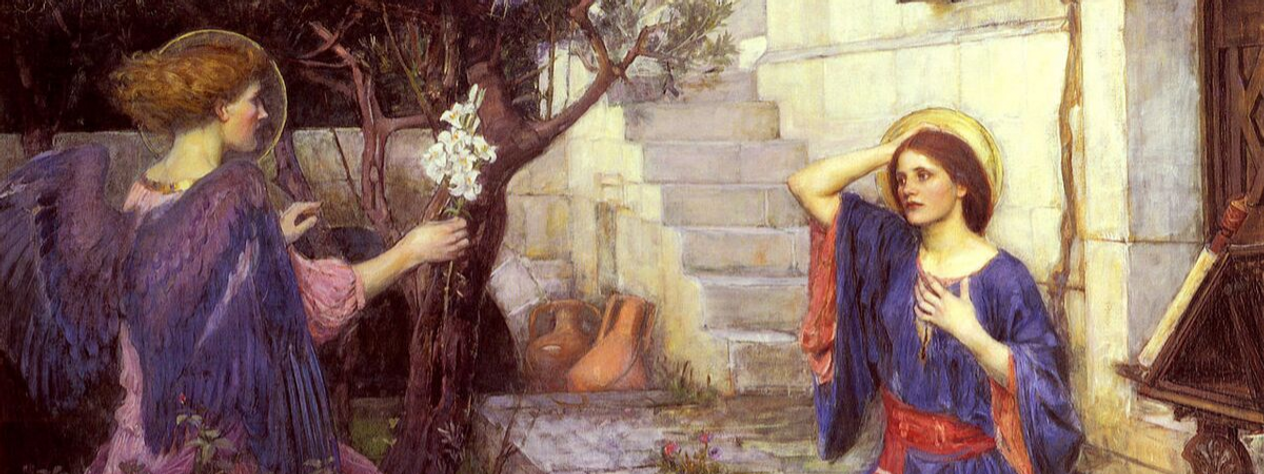Guess What? The Hail Mary IS In the Bible!
Sep 16, 2019 by Ashley Olik
One of the aspects of the Catholic faith that Protestants struggle with the most is the honor that Catholics give Our Lady. In particular, the "Hail Mary" seems to be a particular point of contention. Some Protestants point to that prayer and say, “That is proof of Catholics’ idolatry of Mary. It uses language that should be only for God. AND it’s not in the Bible either!”
As it turns out, however, the Hail Mary comes from the New Testament almost word-for-word; and most of its words come straight from the mouths of angels, apostles, and righteous Jews, no less!

If you or someone you love has trouble understanding why Catholics pray this prayer the way we do and as often as we do (fifty-three times a day at least, if you pray one set of rosary mysteries daily!) then the following breakdown may be helpful. It explains where the Hail Mary comes from—and what each of its parts mean—in the context of the Scripture passages that serve as their foundation.
[[828]]
*There is an image at the foot of this article with the basic information in a chart format. It's perfect for saving and sharing with family and friends!
The Hail Mary In the Bible:
Introduction
To begin, here is the text of the Hail Mary prayer:
Hail Mary, full of grace, the Lord is with thee. Blessed are thou among women, and blessed is the fruit of thy womb, Jesus. Holy Mary, Mother of God, pray for us sinners, now and at the hour of our death. Amen.
The Hail Mary has two sections: a greeting and a petition. Both are rooted in New Testament passages.Within each section, we can break down the text into two parts, which gives us four total sections of the prayer to reflect on.
Part 1
Hail Mary, full of Grace, the Lord is with thee.
Scriptural reference: "And coming to her, he said, 'Hail, favored one! The Lord is with you.'" (Luke 1:28)
Explanation: The angel Gabriel greets Mary with "Hail!", a title usually reserved for royalty. This treasured title serves as a foreshadowing of Mary's role as the Mother of the King of Heaven. Then Gabriel calls her "favored one" (also translated as "full of grace") and one with whom the Lord is present. This confirms God's special presence, His life of Grace and Love, within Mary.
When we pray the Hail Mary, our greeting echoes the greeting of God's own angel and the reality of her role in salvation history.

Part 2
Blessed are thou among women, and blessed is the fruit of Thy womb, Jesus.
Scriptural reference: "Elizabeth, filled with the Holy Spirit, cried out in a loud voice and said 'Most blessed are you among women, and blessed is the fruit of your womb.'" (Luke 1:42)
Explanation: Elizabeth's words are inspired by God Himself, the Third Person of the Blessed Trinity: the Holy Spirit. Therefore we can say that this greeting of admiration and blessing is pleasing to God and an appropriate way to address Mary. The fruit of Mary's womb is her child, Jesus, which Elizabeth alludes to by calling her "mother" in the next verse.
[[379]]
Part 3
Holy Mary, Mother of God
Scriptural reference: "How does this happen to me, that the mother of my Lord should come to me?" (Luke 1:43)
Explanation: This next Spirit-filled acclamation from Elizabeth shows us that Mary is mother not just of the human nature of Jesus but of Jesus Himself, the Son of God, the Second Person of the Trinity. She is the Mother of God because she is the mother of Jesus, and Jesus is God. God chose to confer this honor upon her; He did not have to. Elizabeth, and we ourselves, can therefore rightly call Mary "holy" and the "Mother of God."

Part 4
Pray for us sinners, now and at the hour of our death.
Scriptural reference: "Confess your sins to one another and pray for one another, that you may be healed. The fervent prayer of a righteous person is very powerful." (James 5:16)
Explanation: There's no denying that we are all sinners (Romans 5:8) in need of constant prayer and healing, especially as we approach death and the Final Judgment. James tells his fellow Christians to pray for one another, as they are all members of the mystical Body of Christ (1 Cor. 12). James goes on to say that the prayers of a righteous person have great power. And who is the most righteous person who walked the earth besides Jesus the God-man? The woman whom angels and men address as "favored" and "blessed." The woman who carried the Son of God in her womb. If we believe that those in Heaven truly have eternal life, who better to pray before the throne of God on our behalf than His own holy, blessed Mother?

Does this help you better understand the Hail Mary?
Does it aid your discussions with others about this ancient Catholic tradition?
Share with us in the comments below!

[[5118]]





